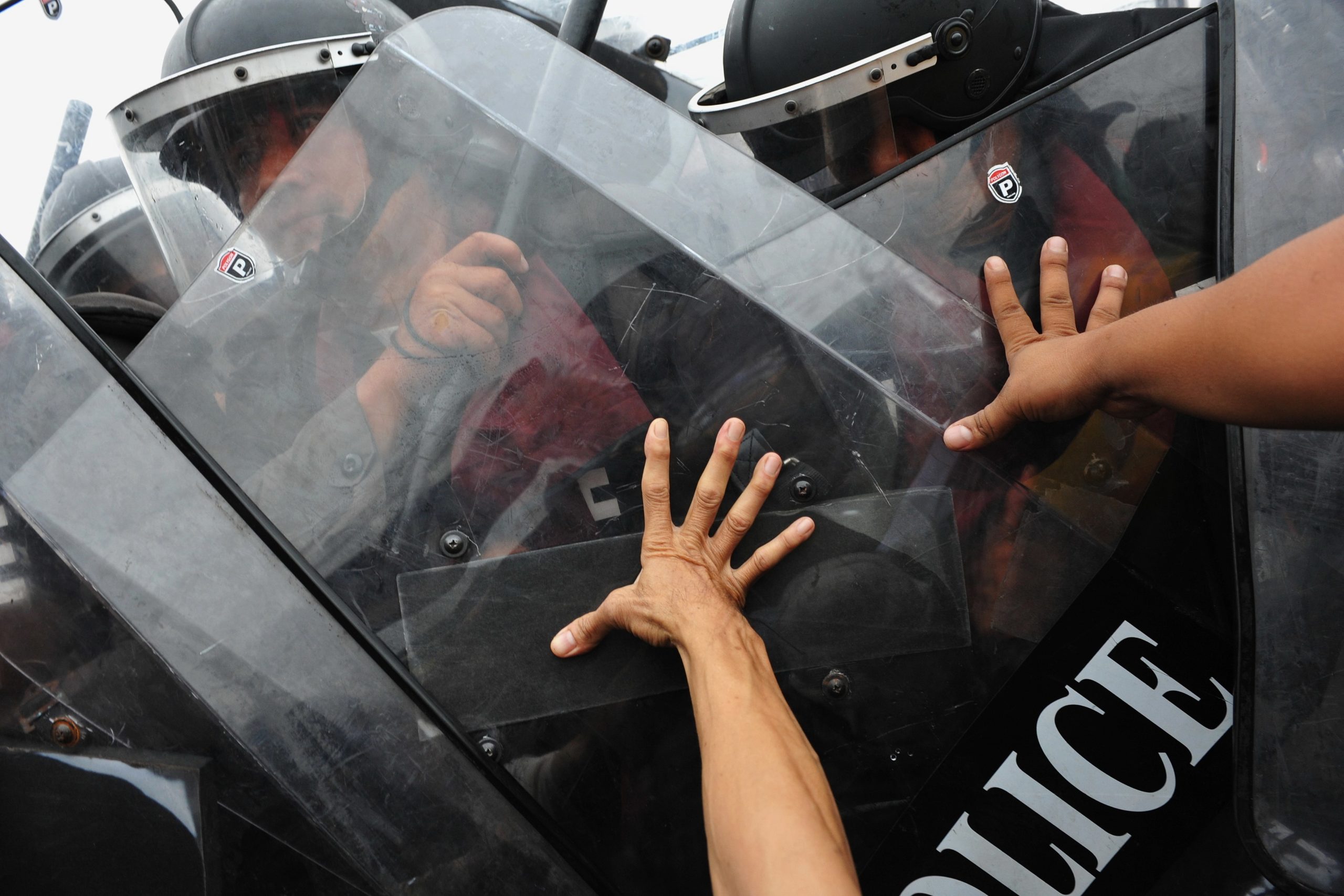
FICS report reveals proliferation of agencies influencing counter-terrorism
Expert authors pinpoint drivers of human rights violations and call for radical change in funder approaches.
The Funders Initiative for Civil Society has published a briefing paper which reveals how the determination of counter-terrorism laws and policies across the globe is being significantly influenced by a staggering 250+ international agencies, with widely varying mandates and accountability to the public, and whom it is very difficult to scrutinize.
‘Is the Global Counter-Terrorism Agenda Shrinking Civic Space?’, was commissioned by FICS in order to get a better understanding of the global counter-terrorism agenda and the growing attacks on civic space in recent years. These include unabating attacks on freedom of expression, freedom of association and freedom of assembly, which are seeing activists, protestors, journalists and civil society groups harassed and even criminalized on every continent, often in a blatant abuse of power by Governments who are using counter-terrorism laws to pursue their opponents.
The FICS paper features contributions from recognized authorities in the field, and is a first attempt at mapping out where the global counter-terrorism agenda is emanating from, who has power and influence over it, and who they are accountable to (more research is to follow).
The briefing paper features striking graphics which illustrate the vast array of entities concerned, ranging from UN and other inter-governmental bodies, to informal taskforces, ‘multi-stakeholder initiatives’, trade associations and private sector alliances, many of which can now reach into everyday life for billions of people. From controlling money transfers, to travel watchlists, biometric data-sharing, internet governance, pre-emptive policing and curbs on rights to protest, the influence of these entities is vast.
The paper succinctly draws together the far-reaching impact of these agencies’ recommendations and influencing, including travel watch-lists, unprecedented digital surveillance, the construction of ‘violent extremism’ as a policy platform for widespread pre-emptive action against ‘suspects’, and effectively private and unaccountable regulation of the internet in relation to countering ‘online extremism’.
FICS Director Poonam Joshi said:
“We ourselves were shocked by what we uncovered. While the immediate response to the 9/11 terror attacks saw significant agenda-setting and trickle-down from the UN Security Council and other UN agencies, we now face a vast array of entities with significant mandates and power to create law and our very norms in the response to what they deem terrorism or ‘extremism’.
“These entities are widely varying in nature and location, the connections between them are opaque, and they usually include no civil society representatives and do not refer to human rights norms.”
Drivers of shrinking civic space examined
‘Is the Global Counter-Terrorism Agenda Shrinking Civic Space?’ goes on to assess the enablers and drivers of this wide-reaching policy agenda. It finds that significant attacks on rights protections have been achieved by putting heavy pressure on states to change their legal frameworks and introduce pre-emptive counter-terrorism practices; by keeping definitions of terrorism and extremism deliberately very wide; by fragmenting law and regulation into specialized areas where technical experts dominate and make little if any reference to human rights. It is notable how much informality is now involved in international law and policy-making (often conducted by these proliferating agencies) with ad hoc networks and meetings instead of heads of state meetings; guidelines and aid-style incentives deployed rather than hard law; and all of these fuelled by an international, never-ending ‘state of emergency’ narrative.
Poonam Joshi continued:
“When we actually turn the light on this wide array of entities, there is an almost total absence of civil society representatives as they proceed in the ongoing negotiation and reproduction of what are radical new norms for the conduct of counter-terrorism. This has happened by stealth and it needs to be pushed back and accountability re-established.”
Pushing back works
The FICS paper draws readers’ attention to key challenges to this powerful and networked counter-terrorism agenda in recent years. Activists and Civil Society Organisations (CSOs) successfully challenged over-reaching ‘terrorism financing’ regulations; there is persistent challenge and exposure at the UN by those with human rights mandates and CSOs; and globally networked journalists working together on the Pegasus hacking revelations are a formidable example of the ongoing power of public interest journalism.
Funders urged to step up
The report concludes with a detailed call on the human rights funding community and coalition builders in this space to look urgently at the failure of sticking plaster solutions on shrinking civic space, and the need to support challenge at the heart of the problem. It recommends support for further research and spotlighting of unaccountable power over counter-terrorism law and policy-making; enabling CSOs to network and support each other; long-term funding of work to challenge the structures from where this agenda is emanating, with a special, sharp focus on the informal sites of counter-terrorism governance.
The FICS paper is part of FICS’ collaboration in Civic Futures, which calls on the funding community to adopt a more joined up and strategic approach to tackling the existential threat to civic space posed by counter-terrorism over-reach. The paper is available to read and share from the FICS website.
FICS is grateful to all the expert contributors to the report. FICS is commissioning further investigations in this area, and hopes that others will use these findings and analysis as a springboard for more inquiry and holding to account. FICS is always actively looking for new collaborators.


